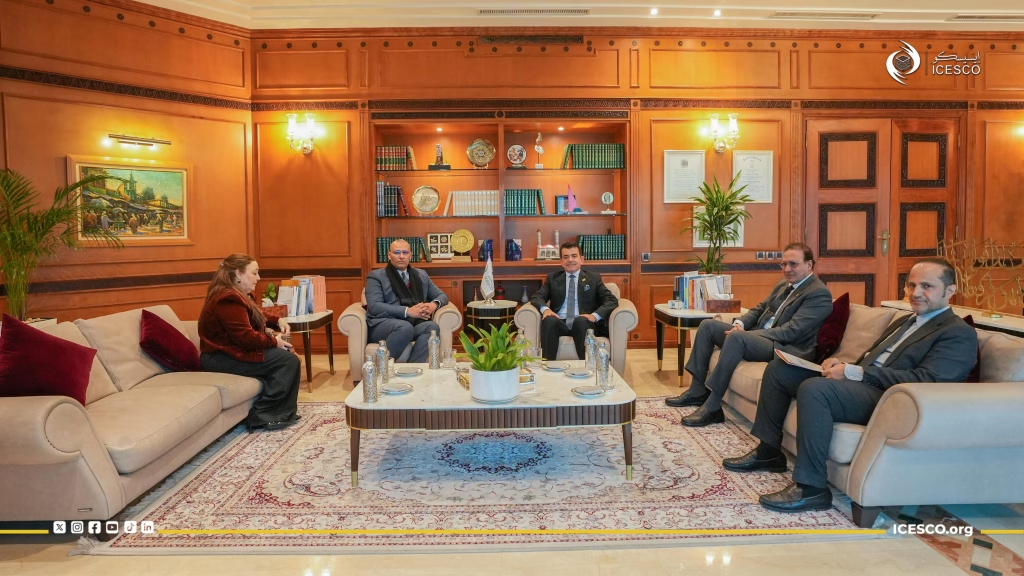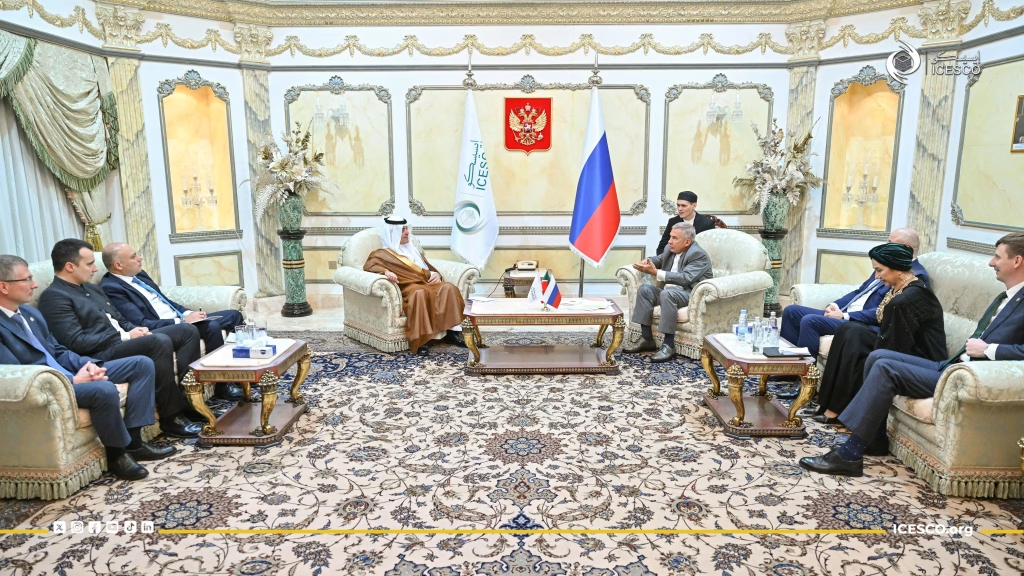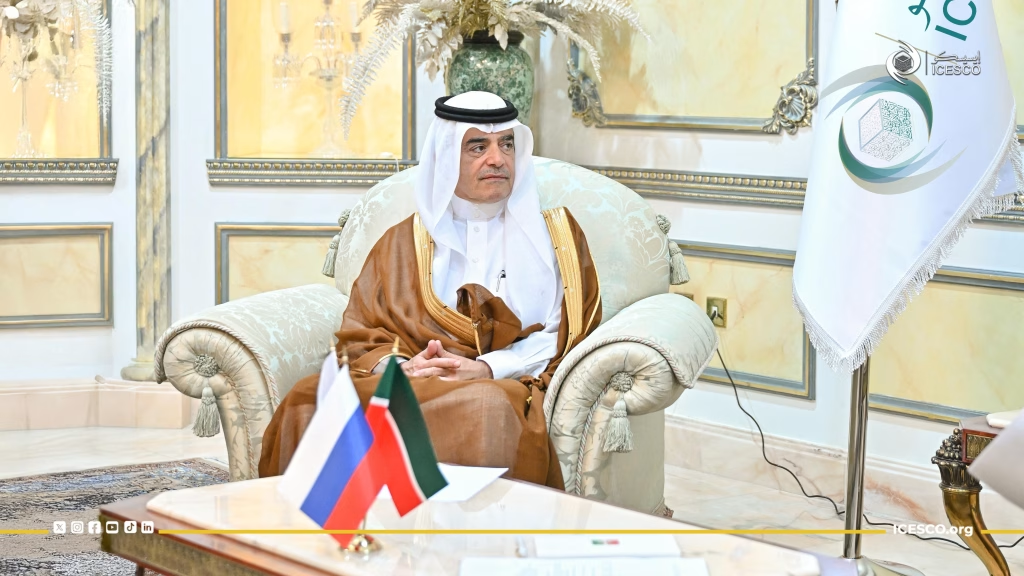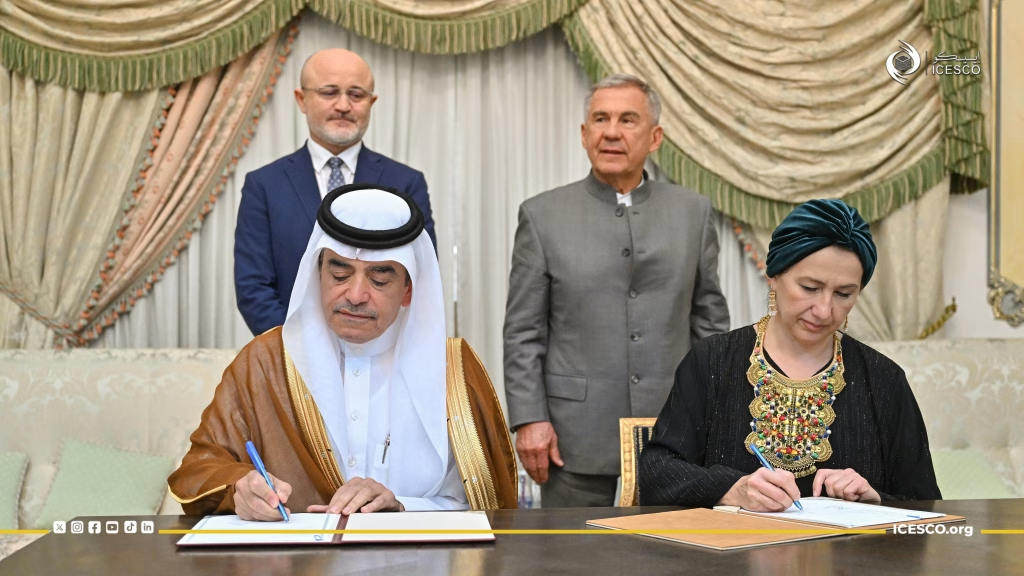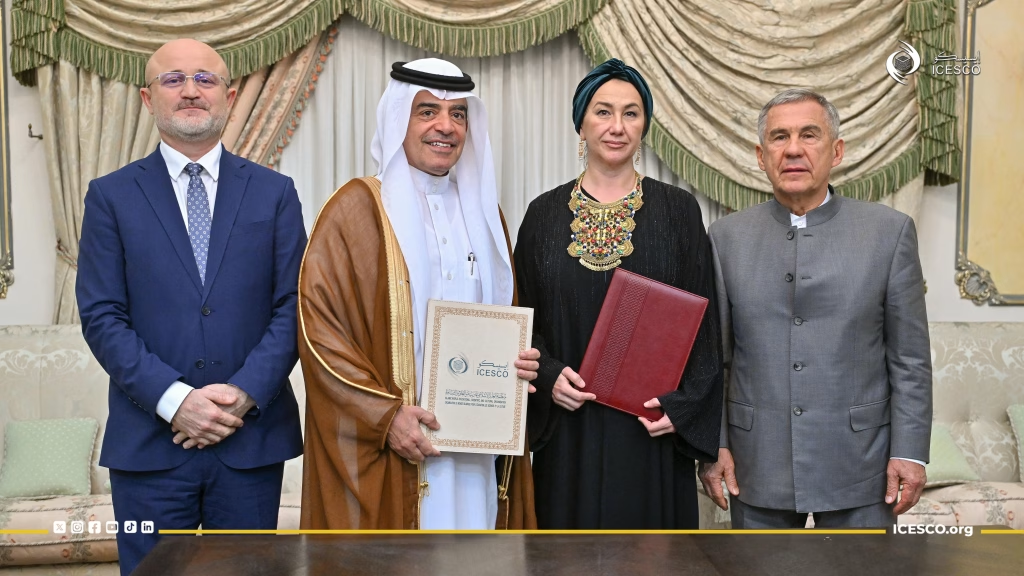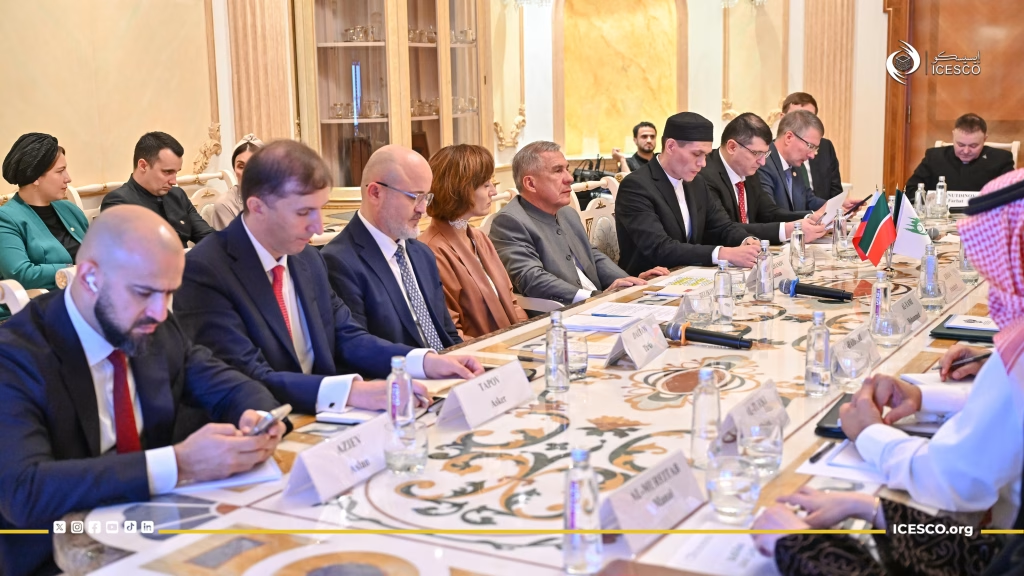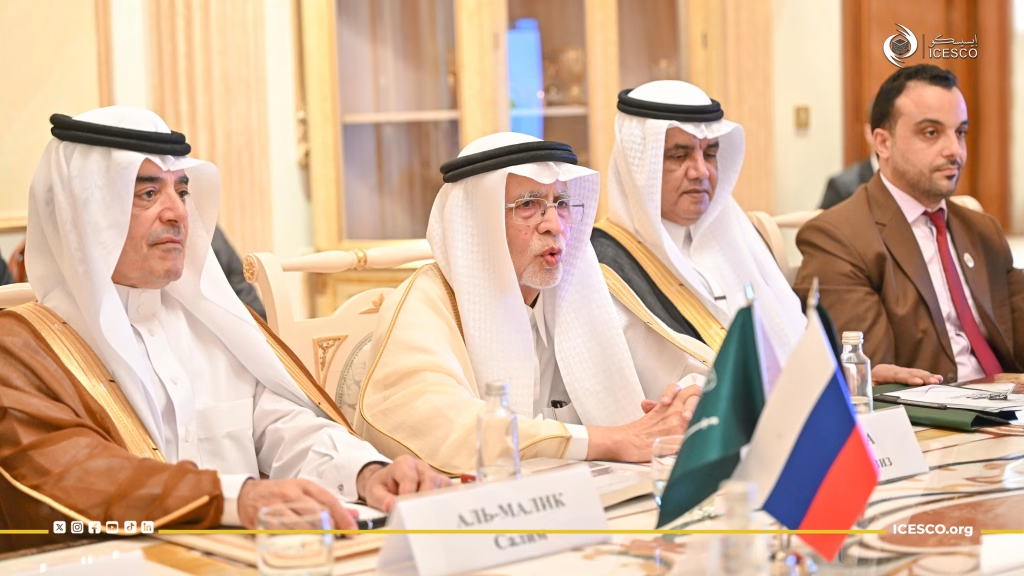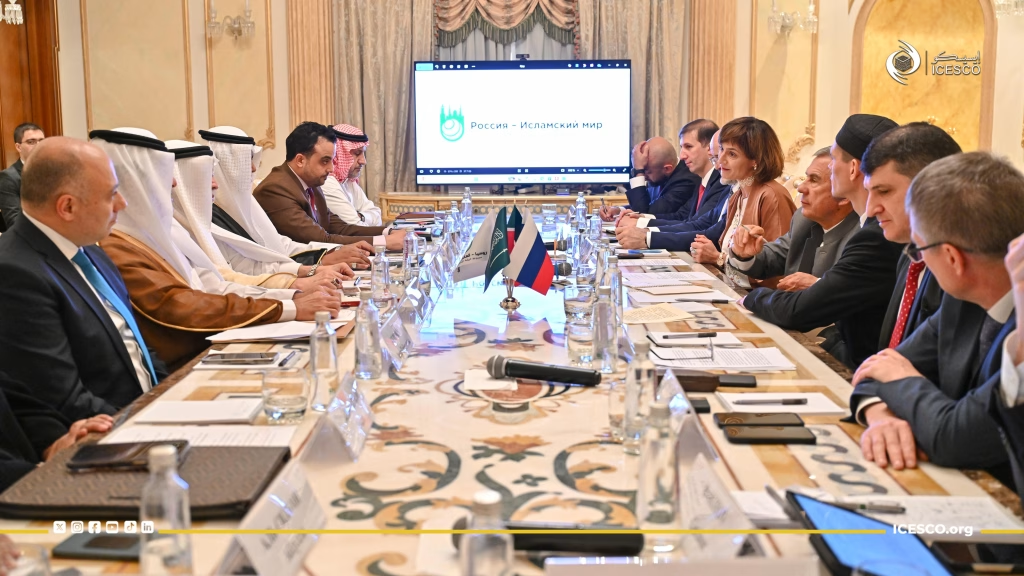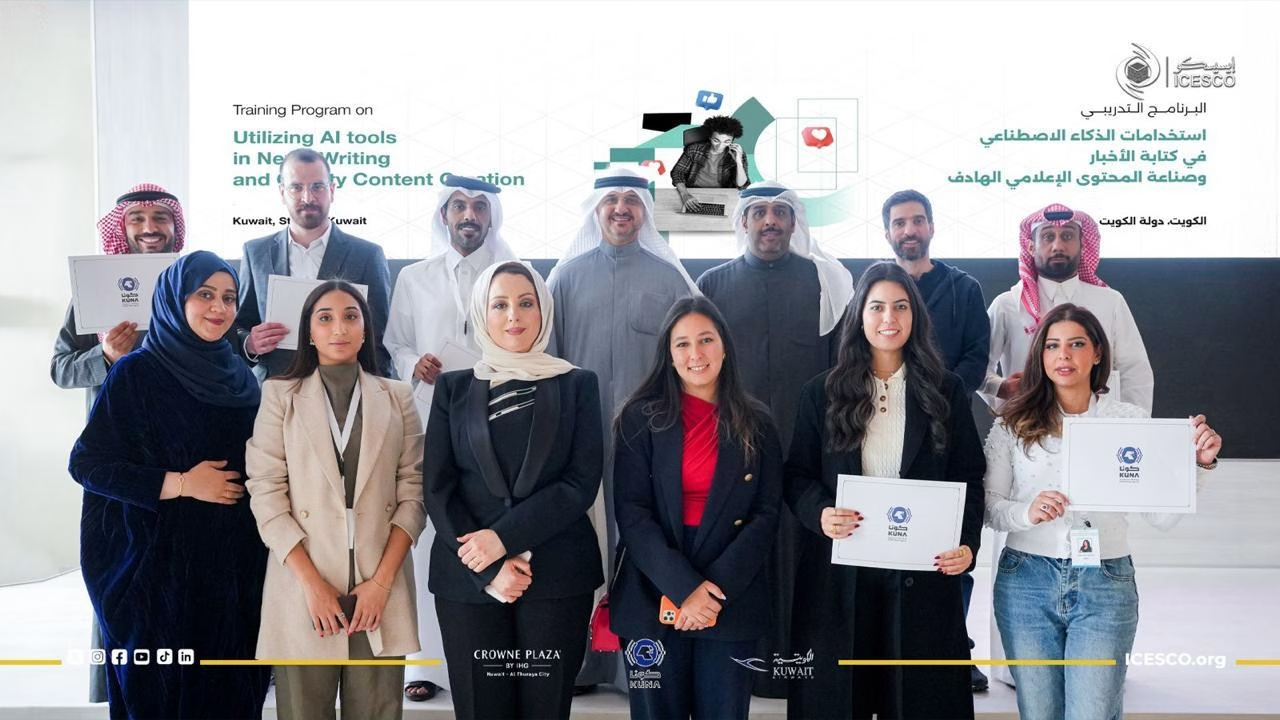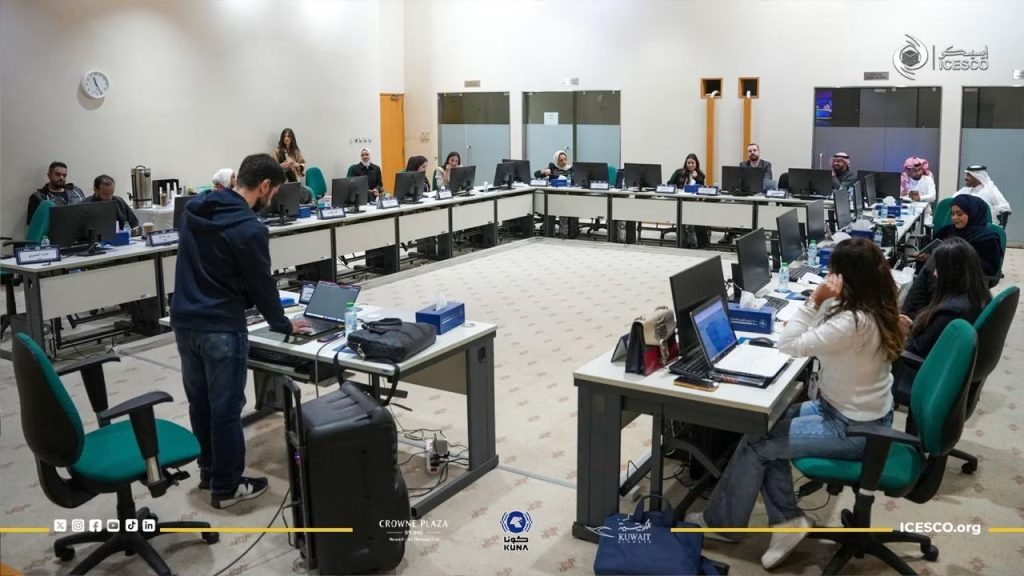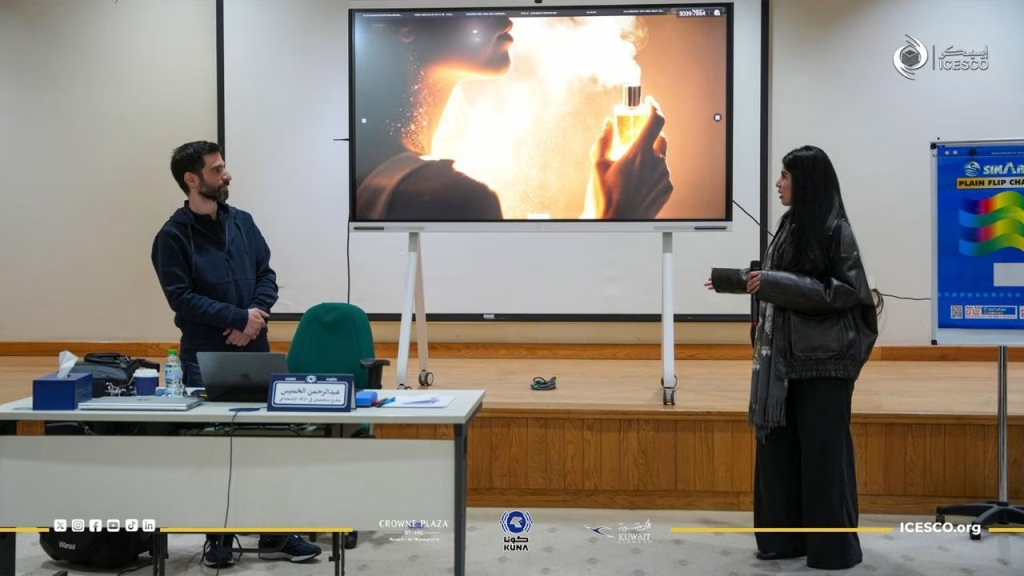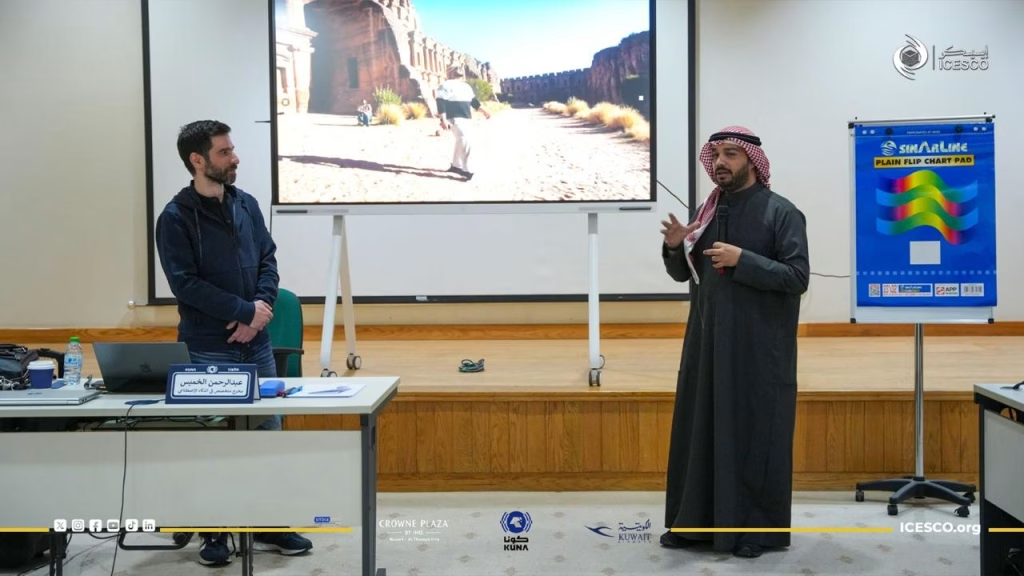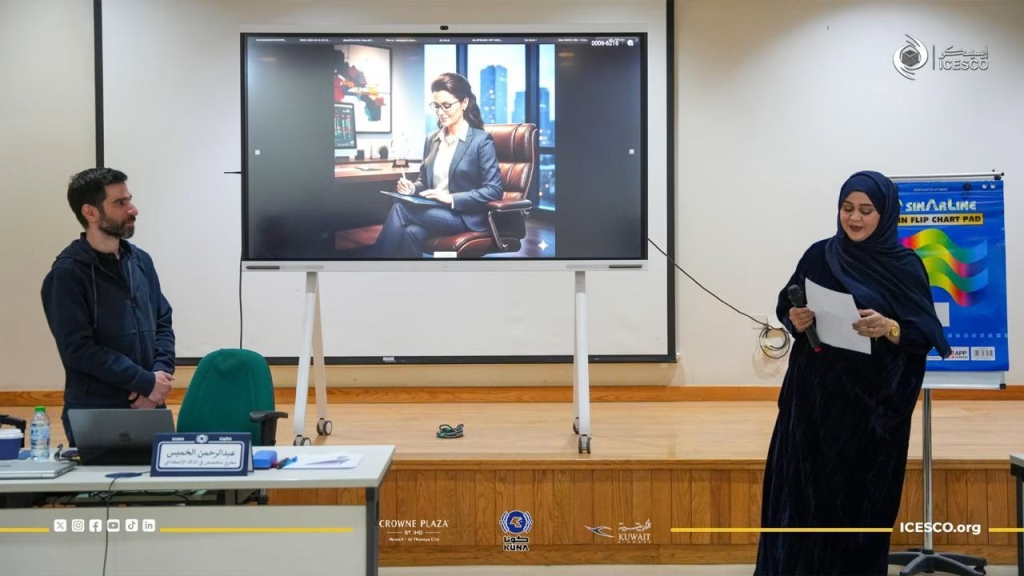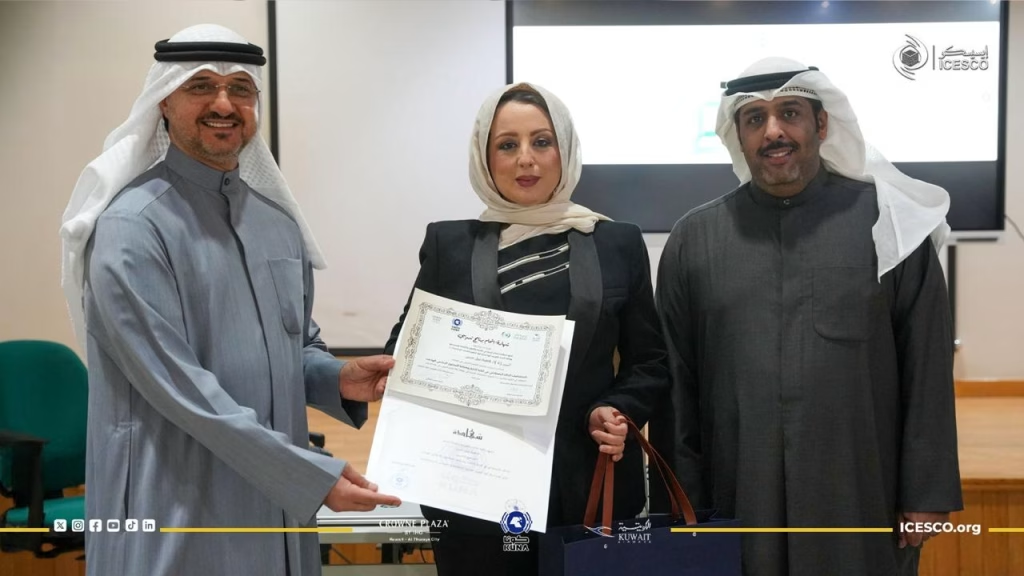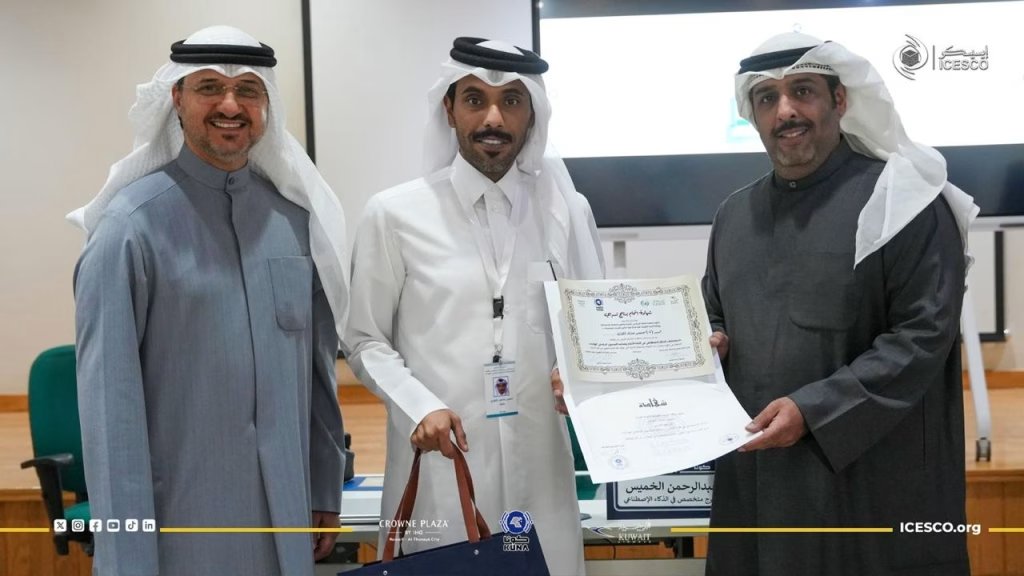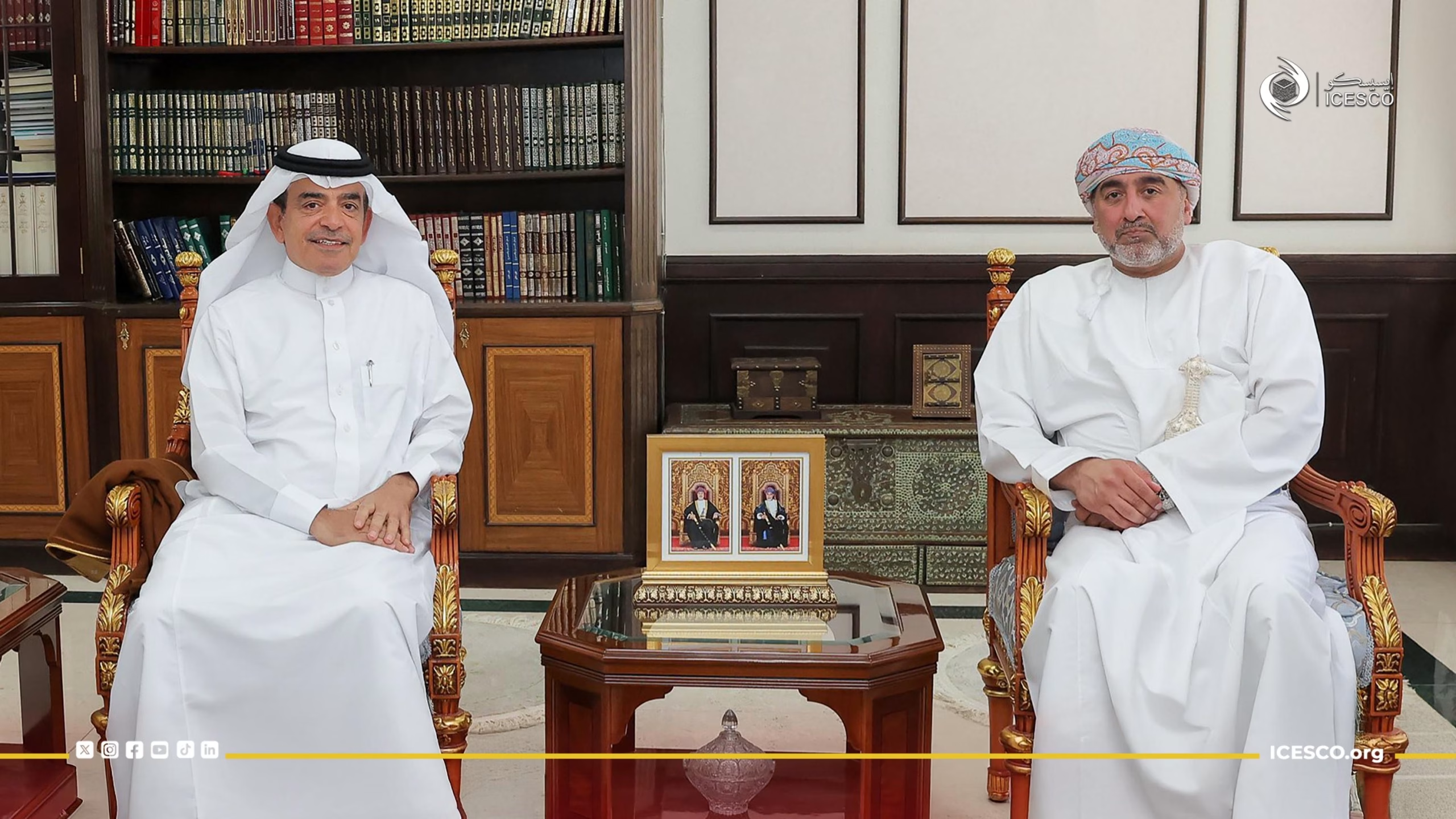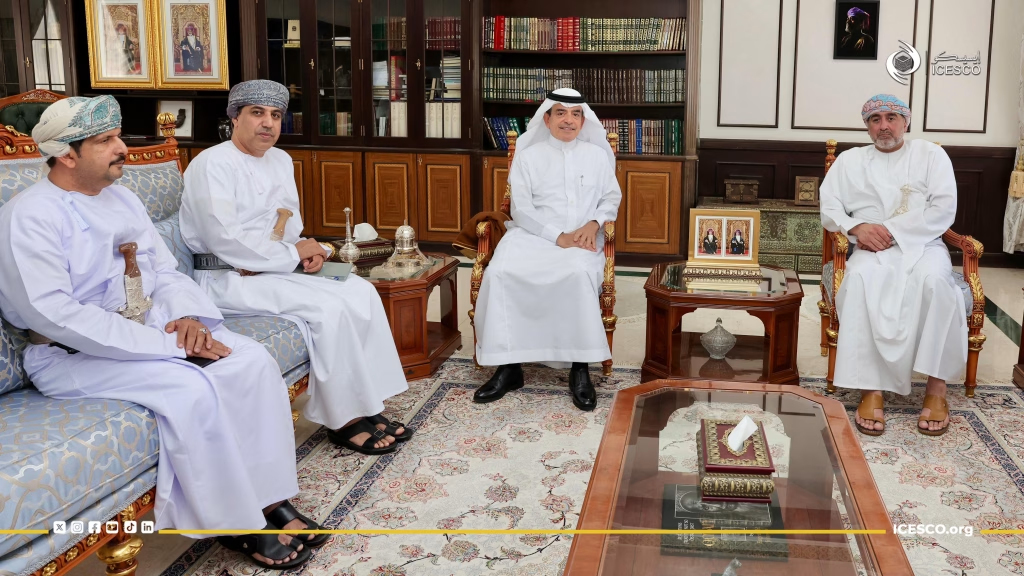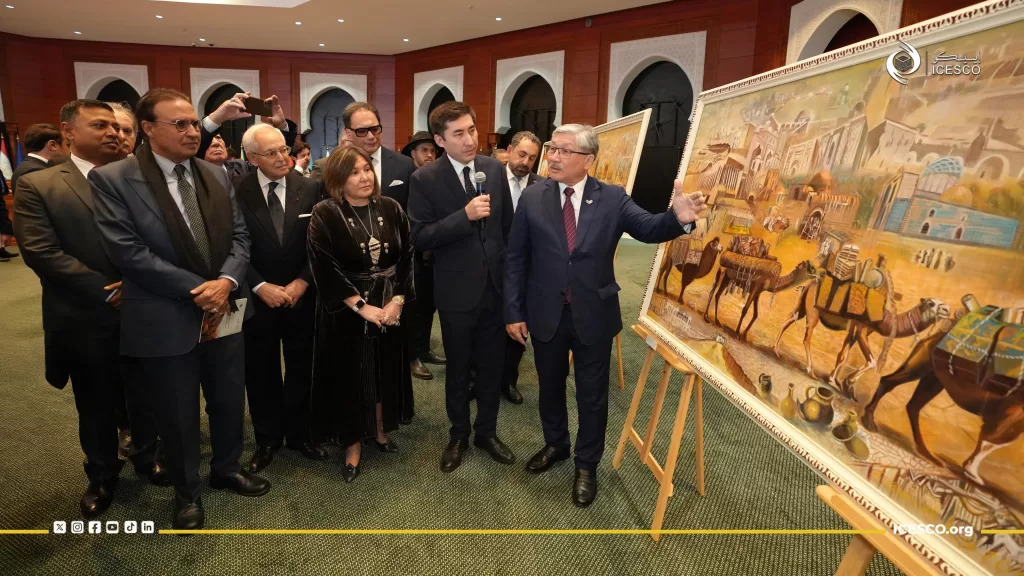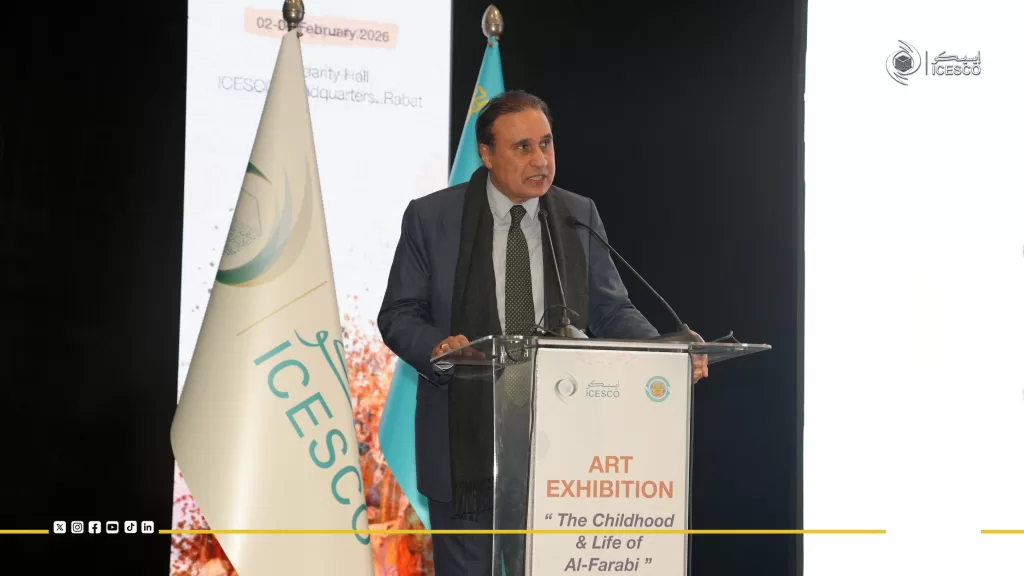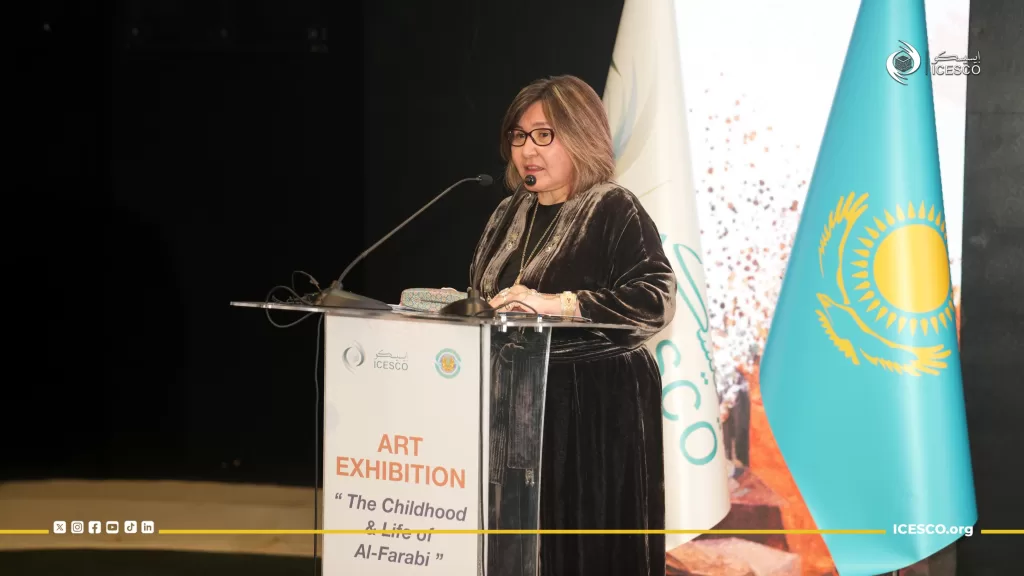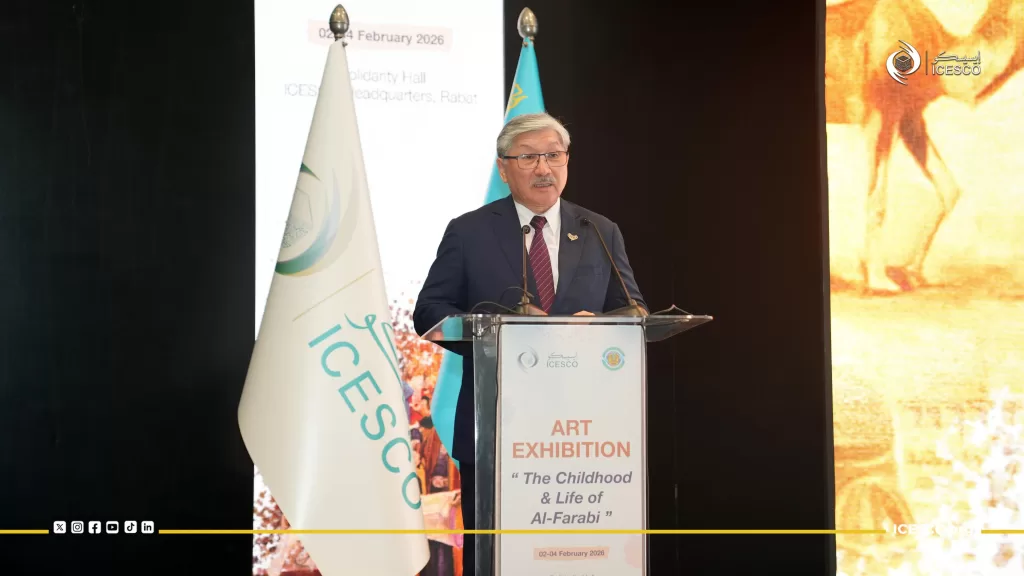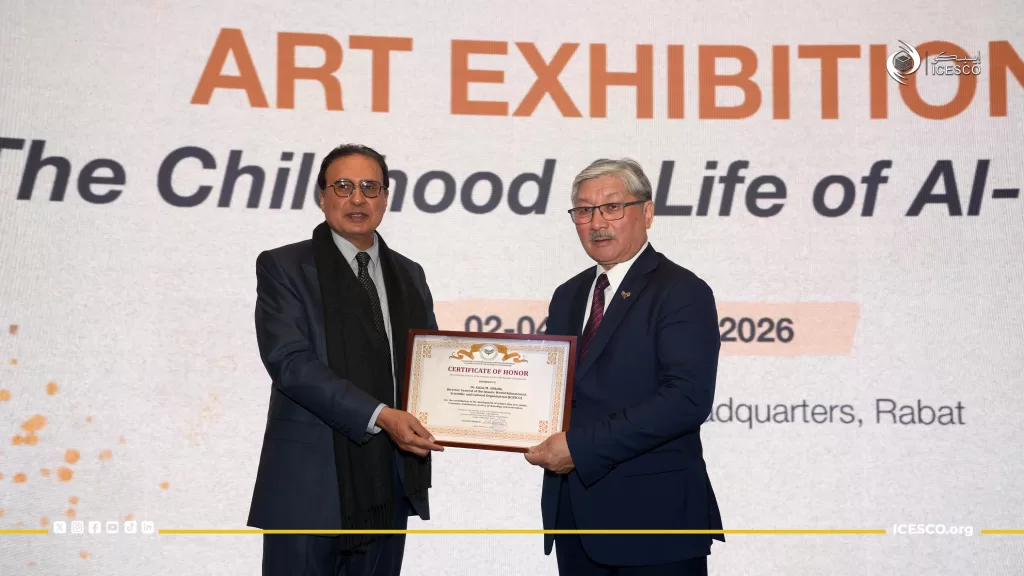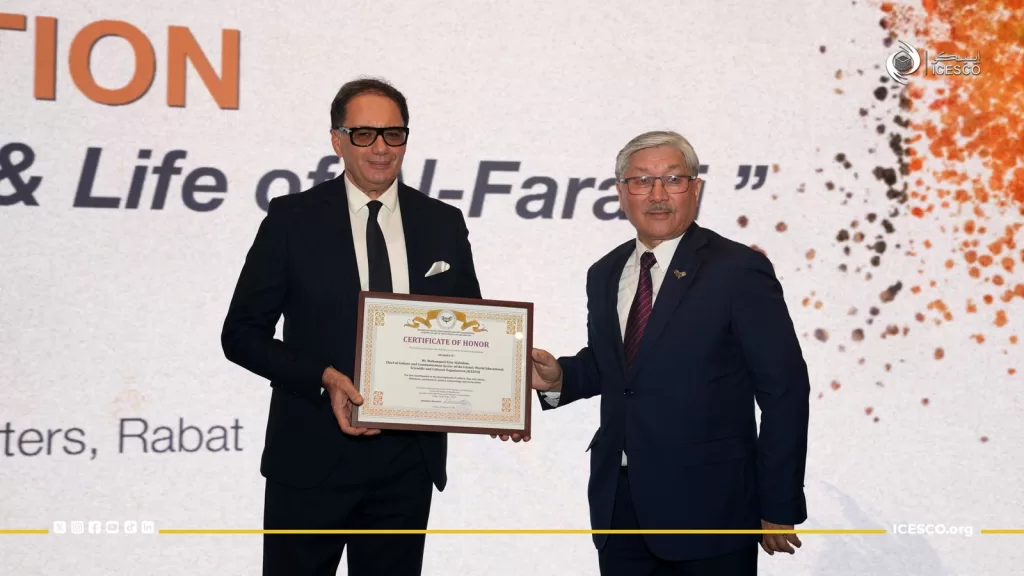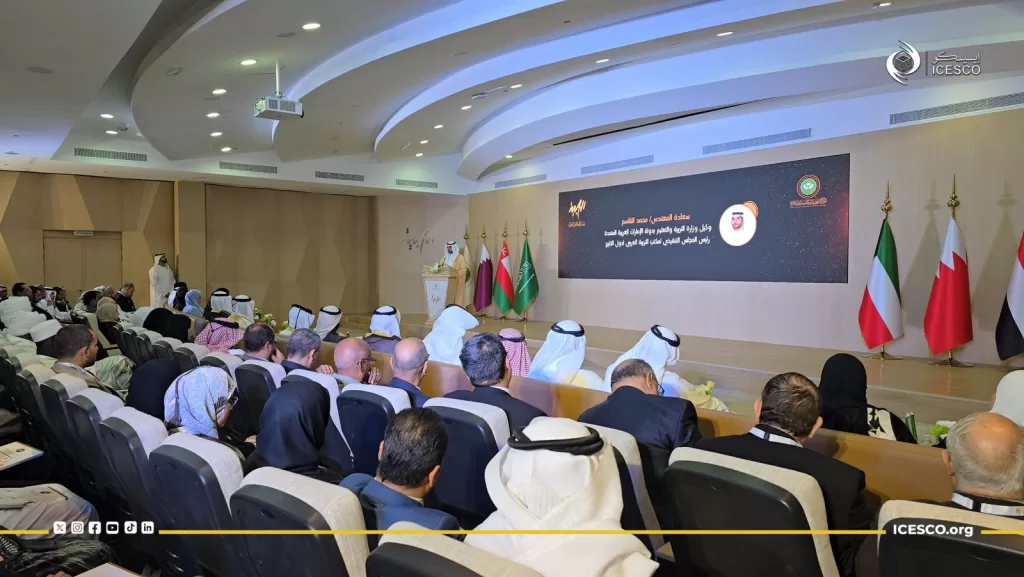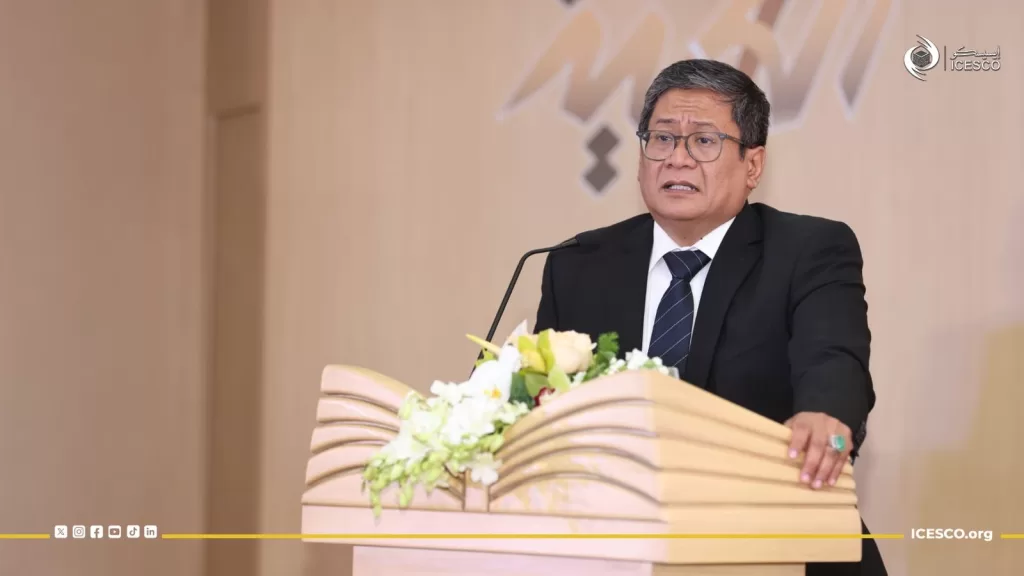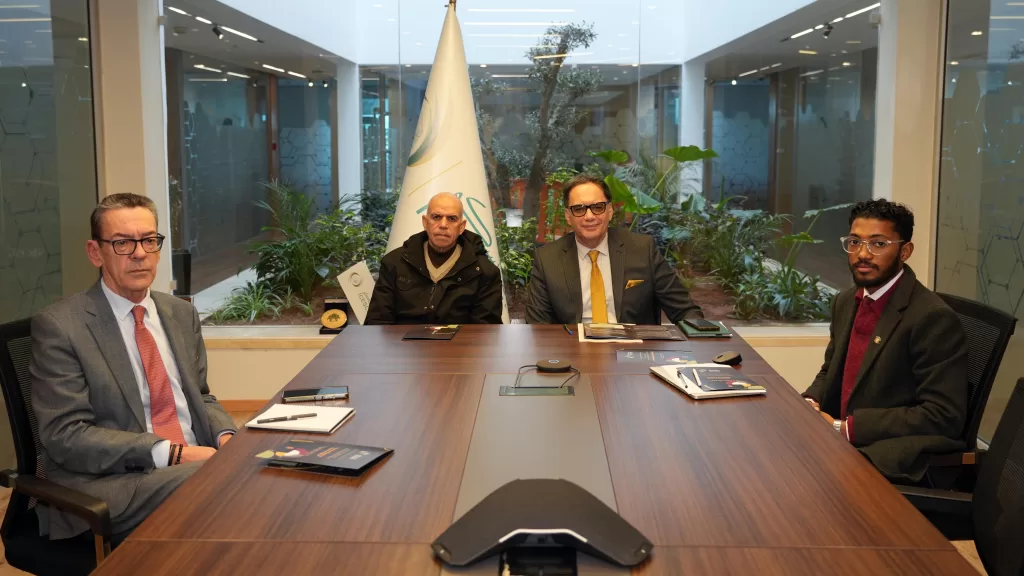His Highness Sheikh Hamad bin Mohammed Al Sharqi, Member of the Federal Supreme Council of the United Arab Emirates and Ruler of Fujairah, received at Al Rumailah Palace Mr. Osama Heikal, Head of the Media and Communication Sector at the Islamic World Educational, Scientific and Cultural Organization (ICESCO), along with a group of prominent media figures from the Arab and Islamic worlds participating in the Fujairah Media Forum 2026. The Forum is organized by the Fujairah Media Office and will be held over two days, 10 and 11 February 2026, under the theme: “New Media: Masks of Truth.”
During the meeting, His Highness welcomed the participants and underscored the importance of media as an influential soft power in shaping societal awareness, entrenching values, strengthening the presence of national identity in society, and developing a sustainable digital knowledge economy. Moreover, he noted that while AI applications are driving progress in media practices, they also pose challenges to content credibility and information accuracy, which calls for stronger professional standards and greater media responsibility.
H.H. further emphasized that the Forum, which brings together an elite group of ministers, experts, decision-makers, and media professionals from the Arab world, serves as an important platform for discussing the challenges facing the media field. It also provides an opportunity to exchange expertise and enhance the media ecosystem in ways that promote responsible media, keep pace with ongoing changes, and elevate media sector performance.
Over its two days, the Fujairah Media Forum will feature a series of specialized media sessions and seminars focusing on new media, digital transformations, content credibility, and the role of media in confronting contemporary challenges.



